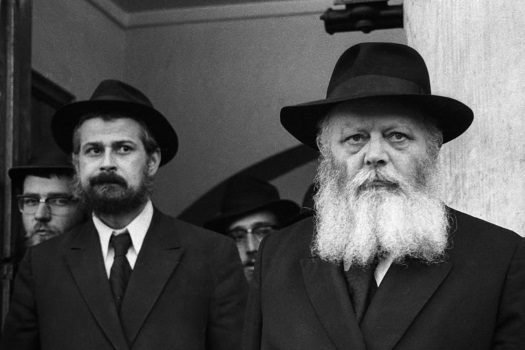
Weekly Story: A Holistic Approach to Chinuch
by Rabbi Sholom Ber Avtzon
Many years ago Rabbi Binyomin Klein came over to me and asked me if I go on mivtzoyim to a certain street in Queens. When I replied in the affirmative he told me that Rabbi Hodakov would like to talk to me. Obviously, I went to his small office with some trepidation as I was wondering what happened on that street that I am being called in for, but he wanted me to talk to a son of his acquaintance from before he left Riga, Latvia. As always your feedback is greatly appreciated
Once that conversation was over I had the opportunity to have a few more discussions with him, and being that the school year is beginning I feel it is imperative that I share the following thoughts he mentioned about Chinuch.
Rabbi Hodakov asked me, “In a hospital how many people are involved in healing the patients?”
After a moment of thought, I responded between five and ten.
He asked me to name them, so I said there are the nurses and doctors and their assistants.
He then said “You didn’t mention the workers who work in the lab and check the blood, don’t you think they are important in the patient’s wellbeing?
When I nodded in the affirmative, he continued, “And what would the patients be like if there wasn’t a large kitchen staff, making sure that the food is appropriate for their special diet, no salt, etc.
Then there are those whose only responsibility is to deliver the food, they are also involved in the patient’s care. And how about the custodian, as we all know a hospital must be kept clean from any bacteria.
And of course, you have the entire administration office. Yes, they are probably not medical professionals, but their entire focus is that the medical personnel should be able to deliver the best results possible.
He then said, “This is speaking about healing the body, that all these details are not only important but they are necessary and paramount. So just think when it comes to healing the soul, which is much more sensitive how much attention has to be given to details.
Dear mechanchim and administration, there is no question that you are in Chinuch in order to help your students grow. However, it is not sufficient that you prepared an excellent and stimulating class. To the students there are other points that to them may be as or even more important, and only after addressing those points can you begin to teach.
No one enjoys being ignored and many teachers at the beginning of the day greet each of their students with a smile and a good morning. The children feel I was acknowledged, the teacher doesn’t feel as if I am just another student sitting in a seat. Even if it is by taking attendance when you call the student’s name look at them, showing I care about you.
The same thing is about the amount and quality of the food that is being served. If the child enjoyed the lunch, or in out of town Yeshivas the supper, he is also content and positive. If on the other hand, the student is still hungry, how much concentration do you think he will or is capable of giving to the class?
The same thing is to the administration, if and when a teacher mentions something has to be done or fixed in their classroom, it is not another item on the to-do list, but it is a priority. You are showing the teacher we appreciate your attention to even small details that can help educate our students.
So while it may not be Chinuch related by many students it affects the Chinuch as much if not more than the Chinuch itself.
Just for everyone’s information, before coming to America in 1940 with the Frierdiker Rebbe, Rabbi Hodakov was the headmaster of all Jewish schools in Riga. Take a thought from a master educator.
Rabbi Avtzon is a veteran mechanech and the author of numerous books on the Rebbeim and their chassidim. He can be contacted at avtzonbooks@gmail.com











A veteran teacher of many years and many schools
So true!
And if the teachers are treated with respect and concern by the administration, it goes very far towards a more positive learning environment for all!